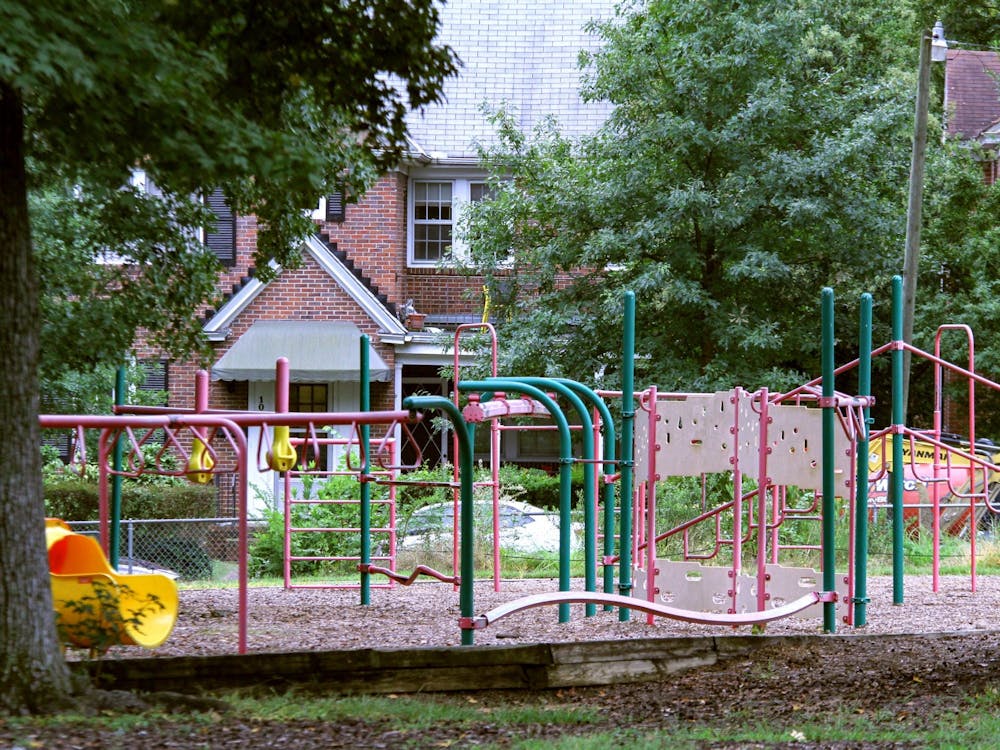Earlier this month, the Professional Educator Preparation and Standards Commission released its initial draft of a new teacher licensure model for North Carolina.
The proposed “Pathways to Excellence for Teaching Professionals” model sets entry-level salaries for teachers with bachelor’s degrees from $38,000 to $45,000 depending on eligibility. Raises beyond that level could increase a teacher’s salary to up to $72,000 based on an evaluation of their effectiveness.
PEPSC will finalize the proposal in the coming months and then seek approval from the State Board of Education. It would then need to be funded by the North Carolina General Assembly to go into effect.
“The overarching goal was to create an outcomes-based licensure system to replace our current system, which is input-based,” PEPSC Chair Patrick Miller said. “If we get this outcomes-based licensing model in place, North Carolina would be the first state to innovate in this way.”
This proposal would overhaul the current seniority-based teacher salary system used in North Carolina, where raises are based on years of experience. The current starting salary for teachers with a bachelor’s degree and no prior experience is $35,460. Teachers then get annual raises of about $1,000 for their first 15 years of experience, eventually building up to a salary of $50,650. The next raise would then come a distant ten years later at 25 or more years of experience.
The National Education Association currently ranks the average teacher salary in North Carolina—$54,150—at No. 33 in the nation. The average starting salary—$37,049—ranks No. 43 in the nation.
Under the new model, the lowest entry-level position of “apprentice teacher” would have a salary of $30,000 and be open to those who hold associate degrees and a state teaching license. Those with bachelor’s degrees would be eligible for the License I position, which would start at $38,000 a year. They could also start at or move up to License II ($40,000) or License III ($45,000) by passing assessments, completing “micro-credentials” or another state-approved process.
The new model would have multiple methods to determine teacher effectiveness and subsequent payment level. One method involves a teacher’s Education Value-Added Assessment System scores, which measures students’ growth on state exams. Other methods include a new “Qualitative Growth Review” system that would measure student growth in specific subjects and peer reviews conducted by principals, other teachers and students.
Teachers can then advance to License IV to become an “expert teacher” with a minimum salary of $56,000. They would then have to take up extra responsibilities like observing lower licensed teachers. If a teacher’s student test scores or peer review ratings are high enough, they could then proceed to a “classroom excellence” track ($61,000) or an “adult leadership” track ($72,000), both of which would entail other additional responsibilities such as coaching other teachers or conducting model lessons.
This overhaul of the teacher pay structure has prompted backlash from teachers, some of whom are likening the new proposal to “merit pay” that ties compensation to test scores. Critics are also concerned about increased dependence on tests and disregard for veteran teachers.
“The new licensure pay proposal is another form of merit pay. In some ways it mirrors a pyramid scheme. Teaching relies on collaboration—we share best practices in order to ensure the success of our students. What this proposal does is it will pit teachers against each other in order for teachers to get to the top in pay,” wrote Michelle Burton, president of the Durham Association of Educators, in an email to The Chronicle. “Merit pay, pay that ties students’ test scores to teacher pay, does not work and never has. Educators throughout [North Carolina] have so many questions and concerns about this new licensure proposal.”
Proponents of the plan say that supposed reliance on test scores is exaggerated.
“Unfortunately, there’s been a lot of misinformation about this model that’s out there. Keep in mind that test scores are one option that can be used in the model. Teachers can choose to use something else to show [effectiveness], and it doesn’t have to be test scores,” Miller said. “I don’t see [the model] as [fostering competition], I see it as this model incentivizing the best teachers in the state to help the other teachers get better, especially early career teachers who often struggle and don’t get the support that they need and exiting the profession. We’re losing too much talent that way.”
A report last month by the North Carolina Department of Public Instruction showed that the turnover rate for teachers in public schools was 8.2% between March 2020 and March 2021. The rate was 7.5% the year before.
“We’re not scared of the unknown,” social studies teacher Kim Mackey told The News & Observer. “We’re concerned with what we know: a shell game of the graphics and the different pathways.”
“The focus needs to be on fully funding the Leandro Plan which gives public schools the resources that they so desperately need to educate our students,” Burton wrote. “The focus should not be on more merit pay schemes for teachers.”
The Leandro Plan is a court-ordered resolution to Leandro v. State, in which the North Carolina Supreme Court found that the state was not living up to its constitutional duty to provide a “sound basic education.” The comprehensive plan would funnel billions of dollars into new education funding for public schools in North Carolina.
Get The Chronicle straight to your inbox
Signup for our weekly newsletter. Cancel at any time.

Jazper Lu is a Trinity senior and centennial/elections editor for The Chronicle's 120th volume. He was previously managing editor for Volume 119.

